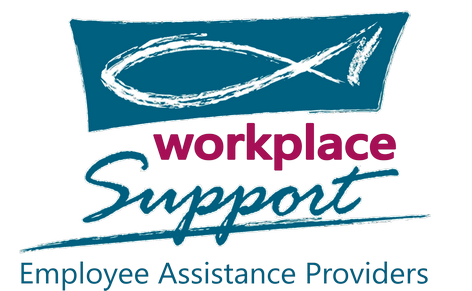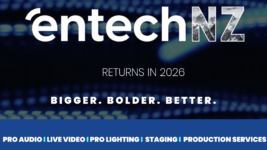News
12 Aug 2021
Workplace wellbeing a priority post-COVID

Subscribe to CX E-News
Entertainment Technology NZ (ETNZ) walks the talk, not only promoting workplace well-being and mental health as a conference theme, but partnering with an employee assistance programme to provide counselling and support to all their members.
ETNZ contacted Workplace Support, New Zealand’s leading employee assistance provider, in the aftermath of the initial COVID-19 lockdown, “It shows an impressive amount of foresight on their behalf,” comments Charlotte Allen, Business Development Manager for Workplace Support, “They quickly acknowledged the huge challenges facing the industry and the people in it and wanted to put support in place for their membership.”
A year on, and Charlotte was invited to speak at the ETNZ Conference, one of a number of sessions that focused on mental health and wellbeing. Charlotte is a trained critical incident responder, and having trod the boards herself back in the day, has personal insight into the demands that are placed on those working backstage, “It is a stressful occupation in normal times but with the uncertainties of the global pandemic, anxiety has escalated.”
Charlotte explained that stress is a part of life. The key is managing it. She talked about how to recognise the signs of stress and measure where you are sitting on your own personal ‘stress escalator.’ At one to three on the scale, you sit in ‘eustress’, a good type of stress that gets you going and where responses are managed by the Frontal Cortex allowing for rational and reasoned thought. As we climb up the ladder, we need to address the mounting stress, through diet, exercise, sleep, fun and talking. The ‘problem shared is a problem halved’ mantra appears to be true. Failure to notice that you are creeping up and up your stress escalator means the limbic, the fight or flight, part of your brain takes over and you enter ‘critical distress’ or more colloquially put, you are burnt out.
Charlotte’s organisation, a non-profit, offers a range of services to employers, employees or as in the case of ETNZ, industry representation organisations, “We provide support and help people learn how to respond to changing stress levels, how to de-escalate.”
Workplace Support’s current arrangement for members of ETNZ means anyone can call Workplace Support completely confidentially and access up to a total of three well-being sessions per person per annum which include counselling, financial planning or career direction sessions, with the option for more if required. Workplace Support tailors its services to the employer or organisation, “Some employers want us to help their staff with everyday issues and finances, some want us to support staff through a restructure at work, or a huge period of change. They recognise that people sometimes need to talk to someone other than their family, workmates or boss.”
How this support is delivered varies from one business to the next. In addition to the well-being services, Workplace Support can provide training for managers, speak at events or conduct onsite visits, “Our onsite ‘Staff Supporters’ are trained to prevent day-to-day issues escalating into more serious or long-term workplace matters. They aim to build rapport over time with employees, so that they feel comfortable to talk to them about any work or personal matter that may be affecting them.”
Workplace Support also offer a peer support programme, “We train up members of staff to become a peer supporter who keeps an eye on their crew, and can access support for a workmate who’s ‘missus just dumped me’ and is struggling, for example.” The crucial part of the peer support programme is the regular group supervision that Workplace Support provides in addition to the initial training, “We get together every month to discuss anything that comes up, and we provide refresher training every six months.”
Workplace Support has seen a significant upturn in demand for their services since the arrival of COVID-19, “People are stressed out for a range of personal reasons such as not seeing family and friends, or are worrying about paying their mortgage, being laid off, or a reduction in contractual hours. And I think there is a heightened awareness amongst people generally that they need to take care of themselves and reach out for assistance.”
COVID-19 has arrived at a time when stress levels were already increasing. Charlotte quotes the 2019 NZ Wellness in the Workplace Survey that recorded a 23% increase in staff reporting stress over the two years prior. Just before COVID-19 hit our shores, the NZ Diversity Workplace Survey (March 2020) recorded that 74% of managers identified mental health of employees as their top concern. According to Charlotte, this is translating into action, “We are getting a lot more enquiries from businesses who realise that they need to work with a workplace wellbeing provider. One example is the construction industry where we have been doing a lot of work about suicide prevention, initiating a conversation and making support more accessible.”
Workplace wellbeing was coming onto the radar for a lot of businesses and industry sectors prior to COVID-19, but in Charlotte and Workplace Support’s view the pandemic and the lockdowns have heightened this awareness, “I think companies and individuals themselves are realising that they can’t wing it where stress is concerned, and they need to take responsibility.”
Charlotte’s presentation at the ETNZ Conference was complemented by Brian Smallwood’s presentation based on his book, “Productivity through wellness for Live Entertainment and Theatre Technicians”. He is also a Production Manager at the School of Theatre & Dance, James Madison University. Conveniently picking up where Charlotte left off on taking ownership of stress management, Brian discussed limiting the amount of pressure that individuals in the industry put on themselves, “We get caught up in the ‘ask’. A client asks for this, this and this, and we do it. We are not Amazon; we are in the prototype industry where everything is a bit unique and takes time and a lot of hard work.”
He promoted not falling victim to schedules, “We put too much pressure on ourselves. Try talking to your employers or clients about your own work-life balance, your need to sleep and exercise. Or if you are going to work fifty, sixty, or eighty hour weeks, you need recovery time. Don’t assume that they won’t want to help.” He also suggested that contractors themselves need to establish boundaries such as not being contactable between 10 pm and 8 am, “You need to unpack tacit agreements and articulate that you are not going to be available all the time.”
Based in the USA, Brian commented that since COVID-19, his belief that wellness had to come first, to foster productivity, was being challenged, “There are many conversations happening around there being less staff now, so more hours, but as contractors you also have some serious agency.” He urged people to use what power they had, whilst also acknowledging that financial concerns may stand in the way.
Combined with Charlotte’s stress escalator and the need to make time for those basics; sleep, nutrition, exercise, talking and fun, Brian’s rallying cry for empowering the individual to make changes hit home. Both presentations were conveniently tied together by the conference’s keynote address from Event Safety Alliance’s Dr Donald Cooper and Jim Digby. They talked about the need for the old ways of dealing with mental health issues to change, a focus on preventive initiatives, and an overt acknowledgement by artists, agents and managers of the impact of COVID-19 on industry member’s loss of identity as well as livelihoods.
ETNZ as an organisation, with the help of Workplace Support, is ticking those boxes. They have recognised the toll on their members, and by providing access to a counselling, financial planning and career direction service to de-escalate stress and support the membership, are hopefully modelling how workplace well-being can be managed going forward.

To contact Workplace Support in NZ call 0800 443 445, or if calling from Australia contact your local ET office to obtain the employee assistance provider in your locale.
Subscribe
Published monthly since 1991, our famous AV industry magazine is free for download or pay for print. Subscribers also receive CX News, our free weekly email with the latest industry news and jobs.




